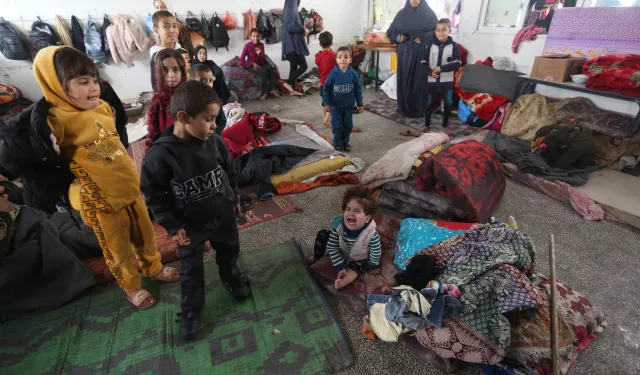The International Sociological Association (ISA) has suspended the Israeli Sociological Society (ISS) from its collective membership, citing the latter's failure to denounce the genocide against Palestinians in Gaza.
The ISA's executive committee announced the decision Sunday, framing it as part of its public stance against the genocide of Palestinians in Gaza. In its statement, the association said it holds no institutional ties with Israeli public institutions as part of its response to ongoing crimes in the territory.
“We regret that the Israeli Sociological Society has not taken a clear position condemning the dramatic situation in Gaza,” the ISA said, adding that the decision reflects “the extraordinary gravity of the current situation.”
The International Sociological Association (ISA) serves as the leading global non-profit organization for the advancement of sociological knowledge, uniting individual scholars and national sociological organizations from over 120 countries since its founding in 1949 under UNESCO.
Headquartered in Madrid, the ISA actively fosters international research and intellectual exchange through its biennial World Congresses and Forums, a vast network of Research Committees, and prominent academic journals such as Current Sociology and International Sociology.
The ISS suspension comes weeks ahead of the ISA’s scheduled forum in Rabat this July, where Israeli scholars had been set to participate—a point that sparked anger among attendees.
Saeed El-Masry, Professor of Sociology and Anthropology at Cairo University, told Al Manassa the suspension carries symbolic and practical weight. “Many participants were planning to boycott the event over Israeli involvement,” he said. “This move by the ISA sends a powerful ethical message.”
He noted that the executive committee convened on Sunday following mounting pressure from delegates, particularly from Palestinian and Moroccan sociologists, who cited double standards in the organization's previous decisions. “They asked why the ISA could suspend Russian sociologists over the Ukraine war, but remain silent when it comes to Israeli academics,” he said.
In 2022, the ISA canceled its annual meeting in Russia to protest the invasion of Ukraine.
El-Masry further emphasized that the ISA's decision asserts the moral responsibility of social scientists. “Sociologists don't exist in a vacuum. Staying neutral in the face of such violence amounts to siding with the aggressor,” he said. “The scientific community must act as a voice for justice.”
He added, “It is imperative for the global scientific community to adopt similar measures to isolate this entity and expose its criminal practices. The decision is, above all, a triumph for principles.”
This latest decision, El-Masry argued, underscores a broader call to action within academia. “It is imperative for the global scientific community to adopt similar measures to isolate this entity and expose its criminal practices. The decision is, above all, a triumph for principles.”
This academic stance comes against the backdrop of the Israeli war on Gaza, which has claimed more than 56,000 lives and left over 132,000 injured since Oct. 7, 2023.
Since the war's onset, several governments and institutions have taken steps to sanction Israel, with Spain notably at the forefront. In May, Spain’s parliament supported a proposed arms trade ban with Israel, a measure Foreign Minister José Manuel Albares recently urged the EU to adopt.
Further demonstrating Spain's stance, Prime Minister Pedro Sánchez also called for Israel’s exclusion from global cultural events like the Eurovision Song Contest, citing precedents set with Russia.
These political actions were preceded by more direct measures, such as Spain’s government unilaterally canceling a munitions purchase contract with an Israeli company in April.
Beyond governmental actions, labor unions across Europe have mobilized in solidarity with Gaza, actively disrupting arms shipments to Israel. In a significant move in Nov. 2023, dockworkers at the Port of Barcelona vowed to block such shipments, demanding an end to violence and an immediate cease-fire.
This solidarity has extended across the continent, where Marseille port workers in France refused to load military equipment bound for Israel earlier this month. Similar actions unfolded in Greece on Oct. 18, 2024, where Piraeus port workers successfully blocked a shipment containing 21 tons of ammunition destined for Haifa, writing “Murderers, get out of the port” on the container.
These acts echo earlier commitments, such as the joint statement issued by Belgian transport workers' unions in Oct. 2023, refusing to handle arms cargo destined for Israel.
The Israeli occupation army resumed its assault on the Gaza Strip on March 18, renewing a war it launched on Oct. 7, 2023. The escalation followed Israel’s refusal to uphold a ceasefire agreement that took effect on Jan. 19 and was intended to culminate in a full exchange of detainees held by Hamas and an Israeli withdrawal from Gaza.
